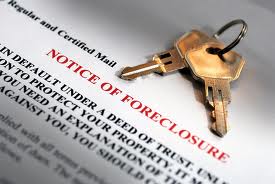
BLOG
Don't Sell Until You Are Ready!
Selling a home is an emotional experience with heavy financial repercussions attached. If you try and sell before you’re truly ready to move, you could find yourself in a stressful, costly situation which wastes a lot of time. Here’s how to ask yourself if you’re really ready to sell.
I love to sell homes. It’s a privilege and an honor to be a part of the process. I get great satisfaction from making my living helping people move on to the next phase of their life, whether it’s upsizing, downsizing, or simply relocating to a new neighborhood.
But there is one sort of home seller I can’t really help: The seller who’s not really ready to sell.
If you’re thinking about selling your home, don’t enter into the process lightly. It’s a big deal. There’s some stress and there’s a great opportunity for joy. There’s a big investment at stake. This, along with a lot of other reasons large and small, is why you want to be 100% sure you’re ready to sell your home. If you think you’re ready to sell, but it turns out you’re not, you waste a lot of time and energy (and sometimes money).
So how do you know if you’re really ready to sell your home?
1. You’re fine with the process. You must have no problem with the idea of a stranger poking around your house, talking about renovating it, or treating it like a used car. If you’ve lived in your house a long time, it’s natural to have emotional attachments. So if the process of selling the house makes you feel protective or defensive, you may not be ready.
2. You are flexible on the right price. Motivated sellers understand selling a home involves negotiation and competitive market pricing. If you have a number “you must get” in order to sell, then you might want to think again. Also, if all of the agents who price your home come back too low for your standards, take a breather and ask yourself if it’s go time or not.
3. You know where you’re going next. Prepared sellers have plans, even if those plans aren’t 100% firm. They’re anticipating the move and they are probably even shopping for houses, if only casually at the moment. If you can’t clearly answer the question, “Where would you like to live after you sell?” then you’re not quite there yet.
If you’re iffy on any of these, take a step back and consider how you feel. While some markets favor sellers more than others, a home can sell in any market for the right price. Don’t jump into something before you’re ready.
However, when you’re ready, I’d be happy to help. Give me a call when the time is right:
Laura Key
310-866-8422
Laura@LauraKey.net
Beware of Rental Scams
Warning Regarding Online Rental Schemes
By Wayne S. Bell, Real Estate Commissioner California Bureau of Real Estate
Issued: October 2013
In prior consumer alerts, the California Department of Real Estate, the predecessor of the California Bureau of Real Estate (“CalBRE”) issued warnings to prospective renters about (i) imposter landlords and (ii) scams perpetrated by or in connection with Prepaid Rental Listing Services.
There are almost endless varieties of real estate and rental fraud. Some are new. Many are old, and some are just variations on timeworn scams.
CalBRE has received reports and been made aware of online rental scams (often using such Internet sites such as Zillow, Trulia, Craigslist, and HotPads), and we want to warn the public about some of the most common ones.
Included in this warning is a list of “red” flags or signs to look for, suggestions on how prospective renters can protect themselves, and reporting recommendations for those potential renters who have been victimized.
Common Scams
In most cases, the fraud involves a scammer who:
- Duplicates or “hijacks” an actual listing of a property that is for rent.
- Creates a fake or fictitious listing for a rental property.
- Offers for rent a real, but unavailable, property.
- Rents a property that is in foreclosure and which will soon be sold, or that has been fully foreclosed (or is in pre-foreclosure).
In the cases mentioned above, the perpetrators do not own the properties (although they oft-times pretend to be the owners) and they are not authorized or licensed to rent the properties.
In most of these cases, the scammers collect money (usually via wire transfer) from the victims for deposits, fees and rents, and in a number of the cases obtain enough personal information, such as social security, driver license and bank account numbers, to steal the identities of the “renter” victims.
For the fraudsters, these are crimes of opportunity and they are simply taking advantage of individuals who are looking for rental housing in a tight real estate market. The perpetrators engage in these crimes (via the Internet ether) because they have found success with such scams and continue to find victims who send money and/or who provide personally identifying information that can be used by the scammers to commit additional crimes.
Please see Consumer Alert – Beware of Imposter Landlords and Consumer Fraud Alert and Warning – Prepaid Listing Services (PRLS).
Because of the anonymity and widespread availability of the Internet, an online rental scam can be started and operated from anywhere in the United States or in other countries.
“Red” Flags
While none of the “red” flags below is definitive proof of fraud, the following are warning signs of a possible scam:
- The advertised rental rates are low (many times very low) compared to other rentals in the area. Always remember the time-tested adage that if something seems too good to be true, it probably is.
- The purported landlord or agent requests that the advance payment of rents and deposits (and possibly other fees) be made via cash or wire transfer (such as Western Union), and/or asks for personal information such as social security number, bank account information, and driver license number. It is important to note that payments made by cash or wire transfer provide little – and usually no – recourse, especially since the scammer to whom the funds are wired usually disappears and cannot be found. While credit card payments are not accepted by many landlords or property rental agents, prospective renters should – to provide an amount of self-protection – ask to pay for rents, deposits and fees by credit card.
- The supposed owner or rental agent is either out of the country or in another State, or is in a hurry to leave California, and states that the rental property cannot be shown or toured.
- The prospective landlord or property agent is not willing to meet in person, and/or applies pressure to complete the rental transaction as soon as possible.
Ways that Prospective Renters Can Protect Themselves
The best advice for prospective renters is to be wary, and to conduct their own diligence and investigate the person with whom they are dealing or negotiating, and the property itself. In this regard, potential renters should:
- Confirm or verify the identity of the supposed landlord or property agent. To see who owns the property, contact a licensed California real estate agent, the county recorder’s office in the county where the property is located, and/or a title company. Talk with neighbors about the property and ask who owns it, and ask a lot of questions about the rental history of the property. If dealing with a property manager or leasing agent (who does not live at the property), look them up on the CalBRE website (www.bre.ca.gov) to see if they are licensed. If they are, check to see if they are disciplined or otherwise restricted in the real estate practice that they can do. Also, check the person out on Google or other search engines, and through the Better Business Bureau.
- Confirm that the property is not in foreclosure or pre-foreclosure. This is especially true when renting a house. The mortgage loan should be in good standing and not in default.
- Not rent a property without viewing and touring it in person.
- Not pay or transfer any money without reviewing all rental documents, and getting copies of all writings pertaining to the property.
- Demand to meet and then actually meet the supposed owner or property manager in person, and ask many questions about the property and the neighborhood.
- Work with an experienced, competent, and licensed California real estate broker, or salesperson working under the supervision of a broker.
- Take photographs of the property.
- Not pay anything in cash or wire transfer money.
- Do research on what comparable properties rent for.
The essential point here is that prospective renters, in order to protect their interests, and not become a scammer’s next victim, must remain skeptical, proceed cautiously, do their own investigation of the property and individuals involved with the rental(s), and be aware of and look for revealing signs of fraud.
After Falling Victim or Becoming Aware of an Online Rental Scam
If a prospective renter has been scammed, or becomes aware of an online rental scam, he or she should immediately report the fraud and file complaints with one, more or all of the following:
- The relevant Internet provider (e.g., Zillow, Trulia, etc.).
- CalBRE if a real estate licensee is involved, or if the scammer is unlicensed and purporting to be a real estate agent. Please contact CalBRE at www.bre.ca.gov.
- The California Attorney General, at www.oag.ca.gov/consumers.
- The District Attorney, Sheriff, local police and local prosecutor in your community.
- The Federal Trade Commission, at www.ftc.gov.
- Federal Bureau of Investigation (FBI), at www.fbi.gov.
- The Consumer Financial Protection Bureau at www.cfpb.gov.
Issued: October 2013
Call Laura Key for your real estate needs, rentals, sales, purchase, investment! 310.866.8422 Search for homes NOW!
IRS Simplifies Home Office Deduction
Working from home can be beneficial! Hope these tips help! Need a home checkup? Call me Laura Key 310.866.8422
The number of home owners who work from home at least one day a week increased nearly 10 percent — from 9.5 million to 13.4 million — between 1999 and 2010, according to U.S. Census Bureau data. However, only 3.4 million home owners claimed deductions for business use of a home in 2010, according to the IRS.
The IRS recently announced a new safe harbor provision for home office deductions for the 2013 tax year.
“This allows at-home workers the option to simply take a deduction capped at $1,500 per year based on $5 a square foot for up to 300 square feet,” FOX Business reported. “The requirement that home office space be exclusively used for business and limitations on income earned from that business still applies, and direct business expenses unrelated to the home (advertising, supplies and wages paid to employees, etc.) are fully deductible.”
"The home office deduction is one of the most misunderstood and abused deductions out there," says Margaret Munro, a tax consultant, about the changes. "If you have a valid home office, you take the deduction because you shouldn't be paying tax on money that you're using for your business."
For more information on the deduction, visit the IRS Web site.
Source: “IRS' Simpler Home Tax Deduction Cuts Through the Clutter,” FOX Business (July 24, 2013)
Do you work from home? Buy your next home with your office in mind!
If you work from home, and it is time to move to your next home, there are some factors you should consider carefully before making your decision.
The flexibility afforded by a “zero-commute” combined with the skyrocketing price of gasoline has strengthened the case for full time teleworking and telecommuting. According to an Environmental Protection Agency (2004) study:
“Americans spend an average of 46 hours per year stuck in traffic. Gridlock produces more than $63 billion in congestion costs per year”
The artist community has been well acquainted with the use of work/living spaces for years, but improvements in technology have made the benefits of teleworking and occasional telecommuting more attractive to general consumers. According to the key findings form the International Telework Association & Council (ITAC) Telework America (2000) study:
“Home-based teleworkers also have larger homes, on average, than non-teleworkers; the difference amounting to about 500 square feet. The most popular place for an office in these larger homes is a spare bedroom, with the living room a distant second. The primary home telework activity is computer work (55% of total activities), followed by telephoning, reading, and—averaging 7% of the time—face to face meetings.”
As you purchase your next home, there are certain factors to consider if you need to set up a new home office:
Make sure that your high-tech needs can be met. Have a qualified electrician inspect the wiring of the house to see if the system can handle the extra power load that your home office requires. Older homes may need significant upgrades to handle the extra power, while newer homes are built with more energy-efficient systems to handle the additional power along with heating/air conditioning requirements. If you use cable, DSL or satellite internet access, check with your local service provider to see if access is available in your new neighborhood. Shop around for your telephone provider—in some cases, business service bundles may be more cost effective than regular residential service.
Designate where your office space will be. Determine the amount of space you will need to accommodate your work style and space. In many cases a spare bedroom or living room space can be used, if a formal den option is not available. If your work requires heavy telephone usage or just heads-down concentration, you may want to consider utilizing a room with a door. Doors can be closed to reduce interruptions from other family and household noises.
Plan your office blueprint to include all required furniture, bookcases, computers, fax, and printers. Make sure to allow for filing and storage space for files and extra office supplies. Lighting is critical for computer or assembly work, so make sure to allow for direct sunlight along with any specific task lighting that may be necessary. Select flooring options that will allow you to work comfortably—you may wish to go with hardwood or laminate flooring to allow for your chair to move smoothly across the floor. Install enough phone lines to cover your home, business and fax machines needs.
Is the office easily accessible? If you will expect regular package deliveries, make sure that your designated office is easily accessible to the front door of the home. This is also necessary if you will need to meet clients or visitors in your office and would like to ensure a professional appearance for your business.
Find out about local business requirements. Some cities have zoning restrictions and guidelines for work/living spaces along with tax implications. Make sure to check with your local government to determine if special restrictions exist.
Are you ready to find a home that could allow you to work from home? Or...do you need more room in the current home you own? Give me a call - lets get you started!
Bankruptcy And Buying A House - Is It Smart To Buy A House After Bankruptcy?
Each year, millions of people file bankruptcy as a means of erasing their consumer debts. While this approach may relieve stress, a bankruptcy is damaging, and will hang over your head for the next ten years. Still, it is possible to overcome bankruptcy. The key is making smarter financial and credit decisions. With this said, some people choose to purchase a home after a bankruptcy. Here are a few pointers to consider when buying a home.
Each year, millions of people file bankruptcy as a means of erasing their consumer debts. While this approach may relieve stress, a bankruptcy is damaging, and will hang over your head for the next ten years. Still, it is possible to overcome bankruptcy. The key is making smarter financial and credit decisions. With this said, some people choose to purchase a home after a bankruptcy. Here are a few pointers to consider when buying a home.
Reasons to Delay the Buying Process after Bankruptcy
If you consult with mortgage or financial experts, they will likely discourage you from buying a home following a bankruptcy. After your bankruptcy is discharged, there is a black cloud that looms over your credit report.
When any prospective lender reviews your report, they will be notified of your recent or past bankruptcy. In some instances, this justifies an immediate denial. On the other hand, there are lenders eager to help you establish or rebuild your credit. Thus, they will approve a loan request. Nonetheless, the penalties are steep.
Higher mortgage rates can be anticipated when purchasing a home after bankruptcy, especially if you have not established other credit accounts. Mortgage lenders consider two factors: credit scores and credit reports.
Although a bankruptcy appears on your credit report, having a high credit score will increase your odds of getting a comparable rate. Unfortunately, if you buy immediately following a bankruptcy, you will not have the opportunity to boost your score.
Reasons to Buy a Home after Bankruptcy
Lenders will approve mortgage loan applications one day following a discharge. Therefore, it is possible to get a home after a bankruptcy. Buying a home is perfect for rebuilding credit. Moreover, it is the quickest way to increase your credit score.
After a bankruptcy, the average person has a credit score below 600. Good credit consist of credit scores 650 and above. Maintaining current mortgage payments will gradually increase your score. After two years of regular payments, you will have established a good payment history. Hence, you may qualify for a low rate refinancing, which may lower your mortgage payments.
Ready to search for your new home? Start here!
Appraised Value: The Ups & Downs Of How Much A House Is Worth
How is the fair market value of a real estate property actually determined?
Determining Fair Market Value is an eternal struggle and major balancing act. That’s because buyers want a house to appraise on the low side—to keep the purchase price down. While sellers want the same house to appraise on the high side—to make the sale price higher. And then you’ve got the owners of the house—who also want the appraisal to be on the low side, in order to keep the property taxes down.
So with all these different agendas and points of view, how is the fair market value of a real estate property actually determined?
Once a year, your county sends all area homeowners official notices that put a dollar value on their property. And property taxes are based on those dollar values. But before those notices get sent out, a long, detailed process usually takes place. First, the land is valued as if it’s vacant—an empty lot, in other words. Then any improvements are described and measured. Improvements consist of the house and any other structures, pools, sheds, garages, and so forth. Next, most counties check the Marshall Valuation Service Cost Guide. It’s a standardized nationwide guide for determining the value of the cost per square foot to build a building that fits the description of the improved property. Next, if the house isn’t brand new, the replacement cost is considered, as well as depreciation; the year the house was constructed and the condition of the property are factors here. Appraisers then must take the critical step of comparing the value of the house with recent selling prices of similar homes in the neighborhood. At this point, the appraisal might stand “as is”—or it might be adjusted upward or downward.
Market Value is a theory, in other words—not an unchanging fact.
In a perfect world, you have to have willing buyer and a willing seller. Neither is under duress. Both are in a position to maximize gain and are trying to do this. But in the real world, things are rarely that simple and equally balanced. Which is why people feel differently about the appraisal value of a house. It really depends how strong their position is as a buyer or seller.
Does the local economy come into it at all? You bet it does.
Ask a successful Realtor about that! He or she will tell you they’ve noticed that the Rio Grande Valley’s fast-growing economy is attracting people from other areas who consider real estate here a bargain. That helps fuel increases in property values.
So—now you know where that Grand Total comes from.
You’re armed with the information you need to make a better house-buying decision. For instance, you can understand how two virtually identical houses that are in two different neighborhoods could be very far apart in price and appraised value. And why your choice of the right house in the right neighborhood could be worth a not-so-small fortune to you right now—and years down the road.
Sellers! You can get a great idea of how much your home is worth! Call me for a FREE Comparative Market Analysis (CMA) Laura Key 310.866.8422
5 Things You Should Know Before You Flip A Property
Money is made at the buy, not the sell of your flip. When flipping a house your money is made at the purchase not at the sell of the house. So, many times people buy a house with the intentions of making a huge profit only to find out that they could not make any money after all the renovations because the purchased price of the house was to high.
1. Money is made at the buy, not the sell of your flip. When flipping a house your money is made at the purchase not at the sell of the house. So, many times people buy a house with the intentions of making a huge profit only to find out that they could not make any money after all the renovations because the purchased price of the house was to high. When you purchase your property you need to be sure that you buy the house with enough money to make renovations, have carrying cost, and add about 5 $6,000. Now, cost is at $147,000, and that is if everything goes as planned. Profit is under 10,000 dollars. The mistake was made at the purchase at the home, not the sell.
2. Get an inspection on the home - Get a complete inspection done on your property. By, spending a few hundred dollars on this expense you can save thousands in problems that you cannot see. Foundation, Pest, Wood Rot, Etc... By, getting a full inspection you can rest assured that you know every thing that is wrong with the property before its to late. In the contact for the house you need to make sure that you have 7 days to have a inspection preformed, and if the inspection finds problems that are going to cost more money that you are willing to spend you can get out of the contract with no penalties.
3. Don't do the work yourself: - Get a contractor or several sub-contractors and have the work done quickly. You need to have you house flipped ASAP, so that you can get it on the market and get it sold. When I started flipping my brother and me did a house together, and we did all the construction. I had a construction background and figured it would save thousands, but it took us over 4 months to get the work done that a contractor could have had the work done in a month. But, we trying to save money on our flip did all the work on our time off and after work, and it just took to long. On our 2'nd flip we used contractors for almost everything and had the house completely flipped with a new roof, new air conditioning, new hardwood, and much more in only 3 weeks. We did not have to spend all our time working on the property and were able to spend that time looking for the next deal. This is how you get rich in real estate.
4. Place the property 1 to 2 percent below market value: If you are wanting to flip real estate and make money the object is to buy and sell the property as quickly as possible, so that you can move on to the next house. If you purchase a house and try to sell it at top dollar to make and extra couple of thousand dollars on your flip, and end up holding it for 6 months you are loosing money. Get the house on the market at a price that is going to blow the competition away, and you will sell it no matter what the market conditions. On our second house the market for selling house went down do to the housing market as a whole, and the tightening of the loans across America. We were told that you could not sell a property in this market, but we went ahead anyway and flipped our house. After 3 weeks on the market we had 3 people wanting to buy the house. Why, because we offered it at such a great deal that people wanted to jump on it. That is what you have to do especially if the market is slow.
5. Use a real estate agent - Do not try to sell you house on your own. Harness the power of a real estate agent and the power of the MLS system. When you do a FSBO you are depending on people driving by your house and seeing you sign, with a real estate agent you have someone actively marketing you house to get it sold. Once again this will free up more time for you to look for more great deals. If you want to help the process I have found that craigslist and listing you house in google adwords help to, but use these tools with the help of a agent such as Laura Key to make sure I have all my bases covered.
I hope this article has been helpful with the basics needs of flipping a house. If you will study and learn you will make money. But, do your homework before you purchase a house, and make sure that you can pull a profit on your deal. Then, make it happen! I am a Investor Friendly Agent, let's get you some deals! Laura Key 310.866.8422
Laura Key on CBS News
More Sellers Jump Into Favorable Market
More sellers are ready to put their homes on the market for the awaiting buyers. They are getting top dollar! If you have been thinking of selling, give me a call for a FREE Comparative Market Analysis and let's begin the process! Laura Key 310.866.8422
Inventories of for-sale homes are increasing as more owners see rising home prices and faster sales as a reason to try to sell now, according to industry reports.
In April, the number of listings was higher than the level of homes that were under contract in that month, according to a study by the real estate brokerage ZipRealty, which measured listings in 24 major metro markets.
“It’s less of an indication of buyer momentum flagging and more of seller momentum picking up, finally,” says Lanny Baker, the company’s chief executive.
The reports find that homes are selling faster—on average, within 32 days of being listed. In April 2012, that average stood at 48 days for homes to sell.
“A market in which the sale prices are happening very close to the list prices, a market in which the list prices seem to be moving sequentially higher, and a market in which any of those houses are selling speedily is one that is bringing sellers back,” Baker says. “That makes it feel to a seller that this isn’t going to be a long passive despair that I tried three years ago.”
Source: “Why More Sellers Could Test the Market,” The Wall Street Journal (June 10, 2013)
Want an estimate of what your California home is worth? Fill out the form below! All info is confidential and will not be sold!
[contact-form][contact-field label='Name' type='name' required='1'/][contact-field label='Email' type='email' required='1'/][contact-field label='Address' type='text' required='1'/][contact-field label='City%26#x002c; State%26#x002c; Zip' type='text' required='1'/][contact-field label='Number of Bedrooms' type='text' required='1'/][contact-field label='Number of Bathrooms' type='text' required='1'/][contact-field label='When are you interesting in putting your home on the market?' type='select' options='0-3 Months,4-6 Months,7-9 Months,10-12 Months'/][contact-field label='Please enter any other important features about your home? Upgrades%26#x002c; Garage%26#x002c; etc.' type='textarea' required='1'/][/contact-form]
California Homebuyers Need Homes!
If you can't see the video from the photo please click here: http://www.cbsnews.com/8301-18563_162-57587256/home-flipping-trend-returns-threatening-higher-prices/
Are you thinking of selling? I have buyers! Call me and let's reach your Real Estate Goal! Laura Key 310.866.8422
3 Ways Renters Lose Money
Are you still renting a home or apartment for yourself or your family? If so, you're losing money. Besides losing out on making money with real estate, renters don't get the same satisfaction of home enjoyment that benefits home buyers. If you're renting, call me today to find out how to to buy your own home. Call me today! Laura Key 310.866.8422
Are you still renting a home or apartment for yourself or your family?
If so, you're losing money. Think about these three ways you lose money by renting:
1. You're paying for someone else's mortgage payment. You're missing out on the appreciation that the property gives to the landlord. Appreciation is a term used in accounting relating to the increase in value of an asset, which means in real estate terms, added value to the property. Over the past five years, houses appreciated significantly, making many new real estate investor multimillionaires.
2. Renters don't get to freeze their monthly housing expenses like home buyers can. Of course, many home buyers get mortgage payments with adjustable interest rates and their payments go up over time. However, these payments will not go up over the long term like rising rents. Just think about how much an apartment costs today compared to ten years ago. A two bedroom apartment in Lake Elsinore, California leases for $1,000 today. The exact same apartment rented for $325 in 1996, when it was brand new. Home buyers who had low monthly payments in 1996, who did not refinance their mortgage, enjoy low payments and don't have to worry about rising rents.
3. Renters don't benefit from tax advantages. Home owners get income tax deductions. Tax deductions for interest costs, for instance, save tax payers thousands of dollars.
Emotional Satisfaction of Home Ownership
Besides losing out on making money with real estate, renters don't get the same satisfaction of home enjoyment that benefits home buyers. Many landlords won't allow you to paint your walls in colors that you desire. Also, you won't feel like fixing up the property with custom window coverings and you get little say in flooring materials. Because you can't make your personal statement, you won't feel like you're HOME as much as home owners who feel emotionally connected to their property.
How to Buy Your First Home
The biggest barrier to home ownership is often accumulating funds for a down payment. People think they have to have thousands of dollars for a down payment. However, if you have good credit and a decent job, you can get a mortgage for a home with zero down. And you can finance some of your closing costs as well as ask the seller to help you pay a good portion of your purchase costs. With today's mortgage finance plans, you may be surprised to find out how much of a home you can afford with payments similar to what you currently pay in rent.
You may have to go out of the major metropolitan areas to buy a home. That's why so many people commute in Southern California. Affordable housing costs much less in outlying areas. But so do the rents. If you're renting an apartment for $2,300 in Los Angeles, you could buy a $500,000 home in Wildomar. Our daughter just purchased a home in December 2005 and her mortgage payment, for a 3,000 square foot new home, costs less than $2,300. With her tax savings, she will pay even less than renting a small apartment closer to downtown L A.
If these amounts sound high to you, check your local area. Perhaps your monthly rent is only $1,000 and houses cost less than $200,000. Talk to a mortgage loan officer and see how much of a home you can afford.
If you're renting, make one of your priorities to buy your own home.
Copyright © 2006 Jeanette J. Fisher
Do I Need An Appraisal On A HUD Home?
Buying a HUD Home is not as difficult as you may think! I have helped many people purchase their 1st Home from HUD! Call me today for more details about the process! Laura.A.Key@gmail.com or Visit my website to sign up for FREE HUD Listings! http://www.KeyCaliforniaHomes.com
It is not necessary to have a HUD home independently appraised, HUD offers an appraisal every 6 months. Your Lender may require a more current appraisal than the one provided by HUD. Ask your loan officer or HUD registered agent.
Los Angeles HUD homes, Buying A Hud Home, North Hollywood HUD homes, Westchester HUD Homes, Gardena HUD Homes, Northridge HUD Homes, Santa Clarita HUD Homes, Simi Valley HUD homes, Lemert HUD Homes, Compton HUD Homes, Lynwood HUD Homes, Hawthorne HUD Homes, Inglewood HUD Homes, Baldwin Hills HUD Homes, Playa del rey HUD homes, Marina del Rey HUD Homes, Santa Monica HUD homes, Lakewood HUD homes, Buying A HUD Home, Buying a Los Angeles HUD Home, HUD Trained Agent, HUD NAID agent
White House Rolls Out 3 Foreclosure Prevention Efforts
Even though the market has become of hot bed in these last few months. There are still homeowners struggling to keep their homes. Here are some new programs that may help. Are YOU facing foreclosure? Call me! Laura Key 310.866.8422
The Obama administration announced the extension or debut of three programs aimed at helping distressed home owners avoid foreclosure. The three initiatives are:
Increasing outreach in the Making Home Affordable Program: The U.S. Department of Treasury is partnering with NeighborWorks America as well as the National Foreclosure Mitigation Counseling program to increase support for struggling home owners who seek assistance through the Making Home Affordable Program, which includes the Home Affordable Modification Program (HAMP). HAMP reduces monthly payments by more than $540 each month, on average. “Through the new initiative, housing counseling agencies will help struggling home owners successfully complete and submit application documents to their mortgage company free-of-charge,” according to the White House blog.
Informing the unemployed about programs: The Department of Labor will be encouraging American Job Centers to inform unemployed home owners about federal foreclosure prevention options that are available to them. For example, there is unemployment forbearance through HAMP that allows qualifying home owners who are unemployed to reduce or suspend their mortgage payments for up to 12 months.
HUD’s new Housing Counseling Office: The Department of Housing and Urban Development has launched a Housing Counseling Office, which offers at-risk home owners free or low cost information about foreclosure prevention and loan modification programs. It also offers general information on buying or renting a home, handling foreclosures, and how to avoid scams. The office is made up of a network of 2,500 HUD-approved housing counseling agencies.
“While we are encouraged that the housing market is on the path to recovery, our job is far from finished,” according to the White House blog. “There are still many struggling home owners who need assistance. By connecting eligible home owners with existing foreclosure prevention programs, our new counseling initiatives will enable more borrowers to remain in their homes and go a long way in ensuring a brighter economic future for these families.”
Source: The White House Blog
Home Prices Pick Up at Fastest Pace in 7 Years
Sellers, if you were on the fence about selling your home, this should help you make the right decision! Call me for a FREE CMA on your home! Laura Key 310.866.8422
Home prices nationwide, which includes distressed sales, soared 10.2 percent year-over-year, according to CoreLogic’s February report. It’s the largest year-over-year increase in home prices since March 2006. It also marks the twelfth consecutive monthly increase in national home prices, according to CoreLogic’s report.
When excluding distressed sales, home prices rose 10.1 percent year-over-year in February, according to CoreLogic.
“Nationally, home prices improved at the best rate since mid-2006, marking a full year of annual increases and underscoring the ongoing strengthening of market fundamentals,” says Anand Nallathambi, president and CEO of CoreLogic.
CoreLogic predicts that home prices -- excluding distressed sales -- will likely rise 11.4 percent year-over-year from March 2012.
“The rebound in prices is heavily driven by western states,” says Mark Fleming, CoreLogic’s chief economist. “Eight of the top ten highest appreciating large markets are in California, with Phoenix and Las Vegas rounding out the list.”
The five states with the highest price appreciation as of February 2013, according to CoreLogic, were:
- Nevada (+19.3%)
- Arizona (+18.6%)
- California (+15.3%)
- Hawaii (+14.6%)
- Idaho (+13.5%)
Source: CoreLogic
Are First-Time Buyers Being Shut Out?
Speaking from the trenches, I can honestly say it's hard to find buyers home right now. There are multiple offers and investors who offer in cash! Yet, it's not impossible! Call me today for more info and insight on what you may be facing as a buyer! Laura Key 310.866.8422
Across the country, first-time home buyers have been putting in offers on homes, but many of them keep losing out.
One working mother says she’s put in 30 offers on homes in the $100,000 range in the Atlanta area, bidding $2,500 to $3,000 above the asking price, but each time she’s been outbid. “We have to be on top of the game and be able to drop everything and check out a house or it will be gone,” says another couple in Alexandria, Va.
Tight housing inventories are playing a role. For example, in Boston home listings are down 57 percent and in Atlanta area home listings have dropped nearly 40 percent in the past year.
Also, “investors have been pushing home prices higher faster than expected,” Diana Olick reports for NBC. “But the higher prices get, the more investors may get out, because they won’t be able to find such great bargains any more. That in turn will let regular buyers back in, even if they do have to pay a little more to own.”
Source: “First-time Buyers Struggle as Home Prices Rise,” NBC (March 26, 2013)
Search SoCal homes for free from my Facebook page! www.Facebook.com/RealtyGoddess
‘Boomerang Buyers’ Making a Comeback in California
People who went through foreclosures or short sales during the housing crisis have been gradually returning to the Orange County, Calif., market for at least a year, according to real estate industry observers.
Buyers generally must wait at least three years to qualify for a government-backed Federal Housing Administration mortgage, and it can take seven years to get a conventional loan backed by Fannie Mae or Freddie Mac.
Real estate professional Andreea Stucker, who lost a condo due to a bad loan she could not afford, is among the emerging ranks of “boomerang buyers.” She believes that experience has made her a better practitioner.
More than three-fourths of those who lost their homes will try to become homeowners again, says Paul Scheper, division manager for Greenlight Financial in Irvine, Calif. Nationwide, more than 3.4 million households have completed the minimum waiting period.
Source: "Boomerang Buyers Making a Comeback," Orange County (Calif.) Register (Feb. 15, 2013)
Have you had a foreclosure or a short sale in your past? Has enough time passed so you can own again? Call Laura Key at 310.866.8422 to see if you could be eligible for homeownership again! www.KeyCaliforniaHomes.com
Waste Not...Want Not
Americans have a global reputation for eating vast quantities of food. As a result, there are more overweight people in the U.S. than anywhere in the world. Now it looks like U.S. consumers can add an equally embarrassing reputation for throwing out more food than anyone else. According to a study produced by the Natural Resources Defense Council, a non-profit, international environmental advocacy group, as much as forty percent of food in the United States is never eaten.
That amounts to $165 billion a year in waste, or 20 pounds of food annually for every man, woman and child in the US. Think of it as dumping 80 quarter-pound hamburger patties in the garbage each month.
Americans waste 10 times more food than Asian countries and American waste is up 50% since the 1970s.
Most of the waste occurs in the home. American families throw out approximately 25% of all the food and beverages they buy. Food is so cheap and plentiful in the United States that Americans just don't value it properly. Impulse buys, sales, and incentives to buy in bulk are some of the reasons why Americans buy more food than they can eat.
Part of the problem comes from spontaneous decisions to eat out when there's still food in the fridge. And when Americans do cook at home, they make far more than they can consume. The average size of the U.S. dinner plate is 36% bigger now than it was in 1960.
Portion sizes account for significant food loss in restaurants, too. Seventeen percent of the food served in restaurants is not eaten. Portion sizes can be up to eight times larger than USDA or FDA standard serving sizes. Particularly wasteful are restaurants that serve buffets, because health code restrictions restrict buffet food from being reused or donated.
Among the biggest wasters of food are food retailers. They overstock displays of fresh produce to give an impression of bounty, leaving items at the bottom bruised and not fit to sell. They make too much ready-to-eat food so as much as 50% gets thrown out. And they throw out food in damaged or outdated promotional package that is still edible.
There is also a problem on farms. Approximately 7% of planted fields in the United States are not harvested each year. Growers either can't get a good enough price for their crop to make harvest profitable, or they over-planted and have more crop than there is demand for. Citrus, fruit, and grape packers estimate that as much as 20% to 50% of the food they produce never gets marketed.
Although the economic figures are staggering, the unnecessary high toll on natural resources and environmental implications are more worrisome. Food production accounts for 80% of the country's fresh water consumption. A single hamburger takes 660 gallons of water to produce. Wasted food means that 25% of that fresh water is being wasted.
Food waste also contributes to global warming. Experts say that food rotting in landfills accounts for 25% of U.S. methane emissions. Methane is a greenhouse gas that remains in the atmosphere as long as 15 years and is 20 times more effective at trapping heat than carbon dioxide.
Food labels are culprits, too. Consumers often confuse "sell-by" dates with "use-by" dates. On average, grocery stores throw out nearly $2,500 worth of food each day because the products have neared their sell-by expiration date. Yet most of this food is still perfectly edible.
In many states, it's legal to sell food past its expiration date but many stores do not because they think it looks bad. Most stores, in fact, pull items 2 to 3 days before the sell-by date
An unfortunate truth of all this is that the more food consumers waste, the more those in the food industry are able to sell. This is true throughout the supply chain where waste downstream translates to higher sales for anyone upstream. That needs to change.
In a generation, some nine billion people will be living in a world where the increasing scarcity of natural resources and environmental dynamics more and more affect individuals and society. A prodigious waste of food is simply not a sensible option in a desirable future.
The fact of the matter is that the world now produces enough food to feed everyone in the world, yet one in every six people goes hungry. If Americans could reduce food waste by just 15%, it could feed more than 25 million of the 50 million Americans who go hungry each year.
Source: Good Neighbor Newsletter - Feb 2013
Laura Key, Real Estate Agent - 310.866.8422 - Laura.A.Key@gmail.com
Beginning Your Home Search
Once you've determined that you're ready to buy, it's time to begin thinking about where you want to look. You'll find there are many questions you must answer about the type of house you want to purchase. For example, are you interested in an older home or a new one? How big of a home do you need? Would you like to move closer to certain major roads or freeways? Your REALTOR® can answer many questions about the homes and communities you're considering, and in the meantime, there are myriad resources available for you to begin your research. Location Is Everything
Do you want to live in a particular city or neighborhood? If you're a parent, you're probably considering school districts and other child-friendly options like the proximity to parks. If you're relocating to an unfamiliar area, you can contact the city or county government for information about the community. It's a good idea to investiage crime statistics per neighborhood when you're narrowing down the areas of your home search.
Or perhaps location is the reason why you're buying in the first place -- to move closer to your work, your spouse's work or your extended family, or to live within a particular school district's zone. As you're probably aware, the location of your home can have a dramatic effect on its price.
Size Matters
You may have experienced growing pains in your current home, which prompted you to pursue buying a new abode. Or you're entering a self-employed profession and need a home office. Consider all your space requirements before you start searching for a new home. There's no reason to waste time looking at two-bedroom condos when you really need a four-bedroom house.
Locating Listings
Once you've narrowed down the specifics of your ideal home, where do you find listings? Your REALTOR® has access to thousands of listings in your area through the Multiple Listings Service (MLS). He or she will help you find available homes that meet your criteria. Or, you can start your home search by calling Laura Key at 310.866.8422
Source: CAR (California Association of Realtors)
www.KeyCaliforniaHomes.com ● Laura.A.Key@gmail.com
Credit Info - Are You Able to Purchase a New Home?
For many homebuyers, credit is a big consideration in the buying process. In applying for a mortgage, your credit may be the single factor that opens or closes the door to purchasing the home you want at a low interest rate. You may believe you have a strong credit rating but have never actually seen your credit report. Or perhaps you're concerned that past credit problems will come back to haunt you as you apply for a mortgage Whichever boat you're in, the first step is the same: Obtain a copy of your credit report for a small fee and review it for accuracy. Credit reports are maintained by three credit reporting agencies: Experian,TransUnion and Equifax. It's a good idea to obtain your credit report from all three agencies, since each may contain different information and you don't know which agency will be supplying your report to your lender.
If there is incorrect or missing information that would improve your credit score, report it to the credit bureau. Under the Fair Credit Reporting Act, consumers have the right to review and contest information in their credit reports. Even if your credit report reads exactly like you expected and your credit is in fine shape, going into the mortgage application procedure with peace of mind is worth the nominal fee.
What is credit?
Credit is a record of a person's debts and payment history. Credit bureaus compile individual reports of consumer debt through an array of sources, including credit card companies, banks, the IRS, department stores and gasoline companies, and any other entities granting loans. A credit report is a résumé of your financial performance, with information on your payment standing for all the accounts you've held for the past seven to 10 years (seven years for accounts not paid as agreed and 10 years for accounts paid as agreed).
What is a credit score?
Credit scores, also called "beacon scores," are composites that indicate how likely you are to pay on a loan or credit card as agreed based upon your payment history, amount of debts, length of credit history and types of credit in use. The credit grantor reviewing your loan application compiles your score based on information from your credit report and other data, including your income level.
Fair, Isaac and Company (FICO) developed the mathematical formula for establishing scores. Scores range from 300 (poor) to 850 (excellent), and the rule of thumb is the higher the score, the lower the risk to lenders.
In the past, consumers have not been allowed to view their credit score or be informed of the factors that determined their scores. However, C.A.R.-sponsored SB 1607, signed by California Gov. Gray Davis on Oct. 2, 2000, granted California homebuyers access to their credit scores and pertinent information about what factors determined their scores. The legislation, which becomes effective July 1, 2001, also allows consumers to receive their credit scores when they request copies of their credit files for a nominal fee.
What role does credit play?
Lenders review credit reports to determine debts owed and if they are repaid according to the terms of the initial contract. If you have any outstanding debt, lenders will analyze your debt-to-income ratio and how that debt will factor into your ability to make your mortgage payments.
What do I do when I get my report?
Read through it carefully, paying extra attention to the section on your account payment history.
How do I establish credit?
If you have never taken out a credit card or borrowed money from a financial institution, or if your accounts are young, you can establish credit history by having your rent payments to landlords and monthly payments to utility companies added to your credit report. Credit can also be established by paying off a car, if it’s financed of course.
How do I re-establish good credit?
If your credit report contains negative information, such as frequent late payments, repossessions, collection activity or bankruptcy, you may want to wait to apply until after you've improved your credit record. Rebuild your credit by showing strong payment history in the years following any problems. Most lenders prefer for three years to have passed since a foreclosure on a mortgage and at least two years since bankruptcy. Lenders are willing to forgive past black marks on a credit report if you establish a pattern of responsible debt repayment.
How do I correct a mistake?
Follow the directions of the credit bureau issuing your report. The bureau will contact the source of the information in question and attempt to resolve the dispute. Also, if late payment information is accurate but you have a good explanation (e.g., you were laid off from work or became very ill), you are allowed to add that information to your report.
Source: CAR (California Association of Realtors)
www.KeyCaliforniaHomes.com
Laura.A.Key@gmail.com
Remodeling’s ‘Value’ on the Upswing
Now that the housing market is back, home improvements are, too. And they’re paying off better than in years past. 2013 is shaping up pretty sweetly for home owners.
First, there were the home owner-centric tax benefits (energy tax credits, PMI deduction,mortgage debt forgiveness) that Congress and the President extended through 2013; and now, we’re seeing that our home improvement dollars are working harder.
After several bruising years, spending on remodeling projects is up and so too is your return on your remodeling dollars. The national average percentage recoup on all 35 projects in Remodeling Magazine’s 2013 Cost vs. Value Report rose since last year.
What a different story from 2012, when the ROI dropped in all but three categories.
The annual report is based on a survey that asks REALTORS® around the country to estimate what specific projects, from adding an attic bedroom to installing new windows, would recoup in their market at resale under current conditions.
Of course, what you recoup depends on the specifics of your project, your market, and when you sell. But the report offers a great bird's-eye view of project costs and returns.
So which projects offer the best value for the money?
Exterior projects like siding, window, and garage door replacements took seven of the top 10 spots in this year’s list.
Makes sense since REALTORS® always say curb appeal is half the battle when you’re trying to sell.
Although it’s not in the top 10, I was gratified to see that the backup generator project is up about 5 percentage points since 2012. One of our bloggers, Lisa Kaplan Gordon, invested in a portable generator last year after one too many storms and power outages, and despite the learning curve, she was glad she did. She had power when a lot of her neighbors didn’t; she even shared power.
Indoors, the top-10 projects include a minor kitchen remodel (involving cabinet refacingand new countertops and appliances), which recouped 75.4% nationally.
Kitchen redo aside, replacement projects, such as installing an entry door or new siding,tend to have a higher cost-to-value ratio than remodeling projects. But now that housing has turned a corner, home owners are stepping up their remodeling plans.
Harvard’s Joint Center for Housing Studies saw 9% growth in remodeling in 2012 and predicts that trend will continue as more and more distressed properties are bought and rehabbed.
The housing group says interest in energy-efficiency updates will keep on trucking, too. It’s the one area where spending on remodeling projects rose during the recession.
I’m betting the revived energy tax credit will add fuel to that trend.
By: Christina Hoffmann Published: January 24, 2013
www.KeyCaliforniaHomes.com • Laura.A.Key@gmail.com
Fountain of Youth Slows to a Trickle
The fallout from the housing crisis is still being felt today. One major casualty is the rate of homeownership in the country, which has fallen substantially. The picture is especially bleak for younger households, who comprise the bulk of first-time home buyers. According to U.S. Census Bureau data, the biggest declines in homeownership were among households headed by those under 35 years of age. Rates for this demographic plummeted from a peak 43.6 percent in the summer of 2004 to 36.3 percent at the end of September 2012.
Meanwhile, households aged 35 to 44 experienced a decline in homeownership from 70.1 percent at the start of 2005 to 61.8 percent as of last year's third quarter.
There are two major reasons for the decline in homeownership among younger people. First, tight lending requirements and weak labor markets made homeownership unattainable for many in the younger age brackets. Second, foreclosures caused some of these homeowners to become renters or cease to be households entirely and move in with friends or family.
Also of concern is the fact that declining homeownership rates for younger households have broad ripple effects ranging from delays in marriage and having children to reduced wealth accumulation.
Source: "In the Wake of the Housing Bust, Fewer Young Homeowners," U.S. News & World Report (01/22/13) © Copyright 2013 Information, Inc.
Buying a home is not like buying a car! Have someone who can help guide you through the curves, ups, downs and joys! Contact me today! Laura Key, Real Estate Agent Laura.A.Key@gmail.com www.KeyCaliforniaHomes.com

















